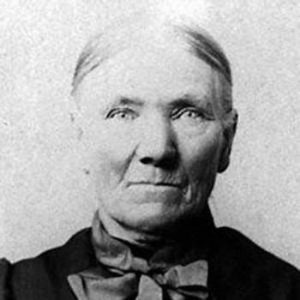In the years after the Civil War, America was a nation struggling to rebuild. Out of that turbulent time emerged voices of resilience, innovation, and quiet courage. Among them was Sarah Elisabeth Goode, a woman whose life would leave a mark not in politics or battle, but in the simple brilliance of invention.

Born in 1855 to parents who had once been enslaved, Sarah came of age during Reconstruction, when the promise of freedom was fresh but the reality of opportunity was still fragile. As a teenager, she moved north to Chicago, a city that buzzed with possibility, where newly freed families sought fresh starts and dreams took root in crowded neighborhoods.
There, Sarah married Archibald Goode, a craftsman skilled in stair building and upholstery. Together, they opened a modest furniture shop. Day after day, Sarah listened to her customers—families living in tiny apartments, struggling with the same complaint: there simply wasn’t enough room. How could a home hold both a bed for rest and a desk for work when the walls closed in so tight?
Where others saw frustration, Sarah saw possibility.

She began to sketch, to imagine a single piece of furniture that could serve two purposes. Her design was ingenious: by day, it stood upright as a cabinet with a fold-down writing surface. By night, it transformed into a full bed, sturdy and practical. It was more than convenience—it was dignity for families who wanted to make the most of their small spaces.
On July 14, 1885, Sarah Elisabeth Goode’s vision became reality. She was granted U.S. Patent No. 322,177, officially making her the first African American woman in the United States to receive a patent.
Her invention, the folding cabinet bed, was revolutionary not just for its clever design but for what it symbolized. At a time when both her race and gender placed her at the margins of society, Sarah carved her name into history. Her patent stood as proof that innovation does not belong to the privileged few—it can spring from anywhere, even from a humble shop on a crowded Chicago street.
Though little else is known of Sarah’s later life, her legacy lives on. She was more than a shopkeeper, more than an inventor. She was a pioneer who dared to solve problems with creativity and determination, clearing a path for generations of Black inventors to follow.
Sarah Elisabeth Goode’s story reminds us that history is not only written by generals and politicians—it is also written by visionaries who look at the ordinary struggles of life and find extraordinary solutions.





